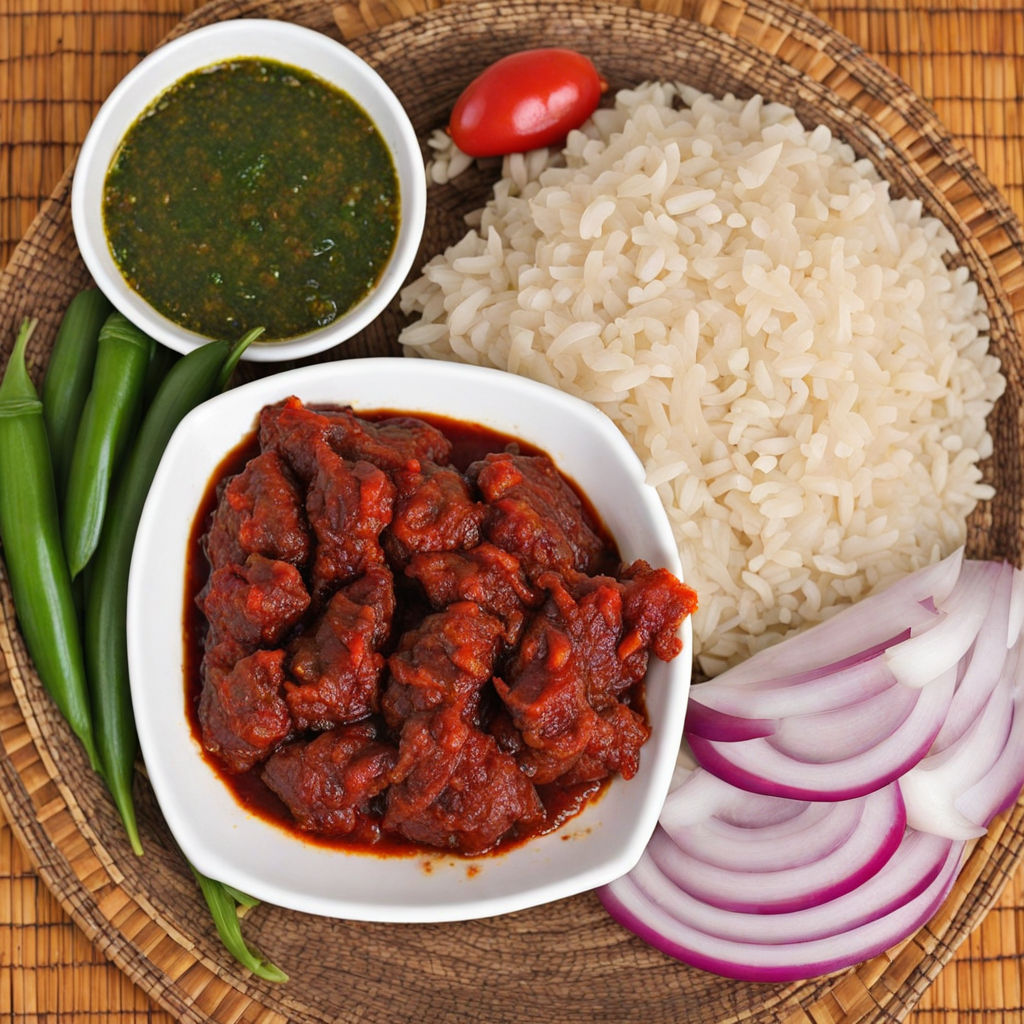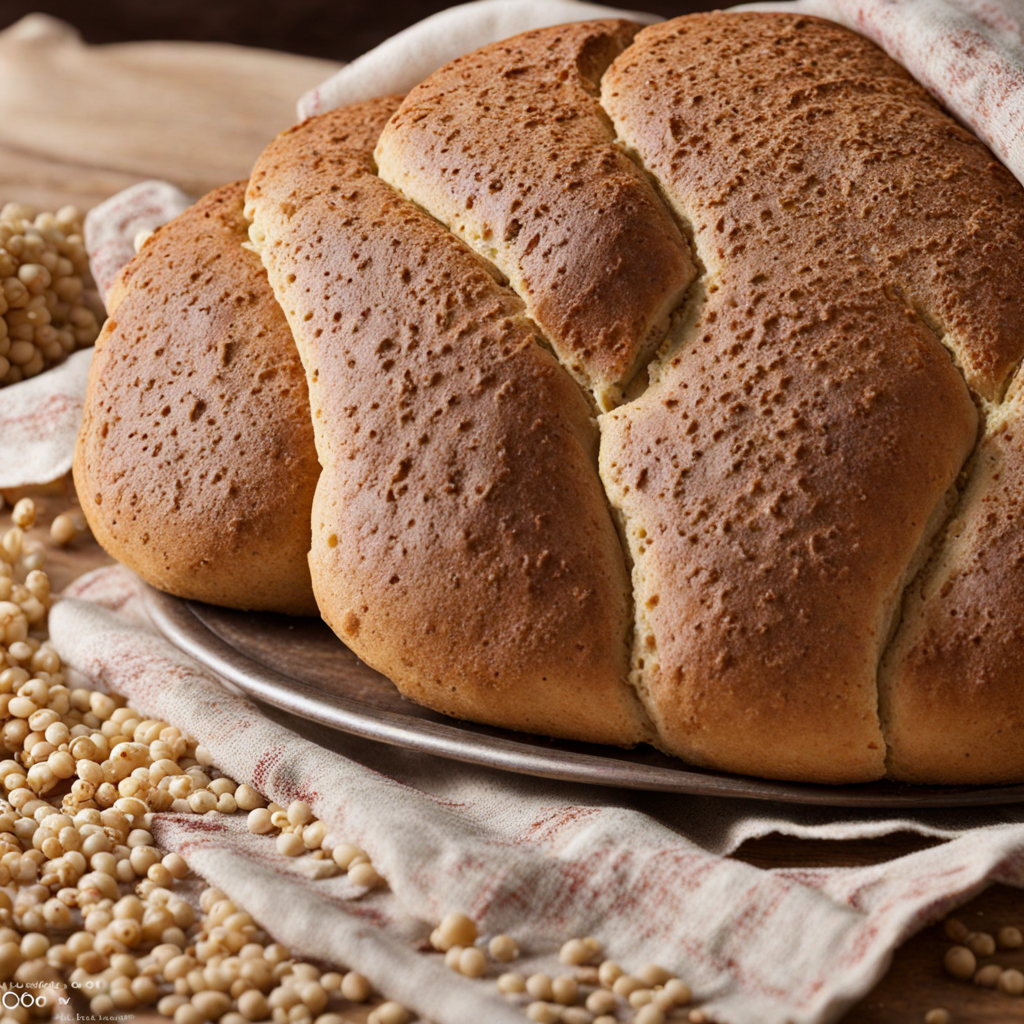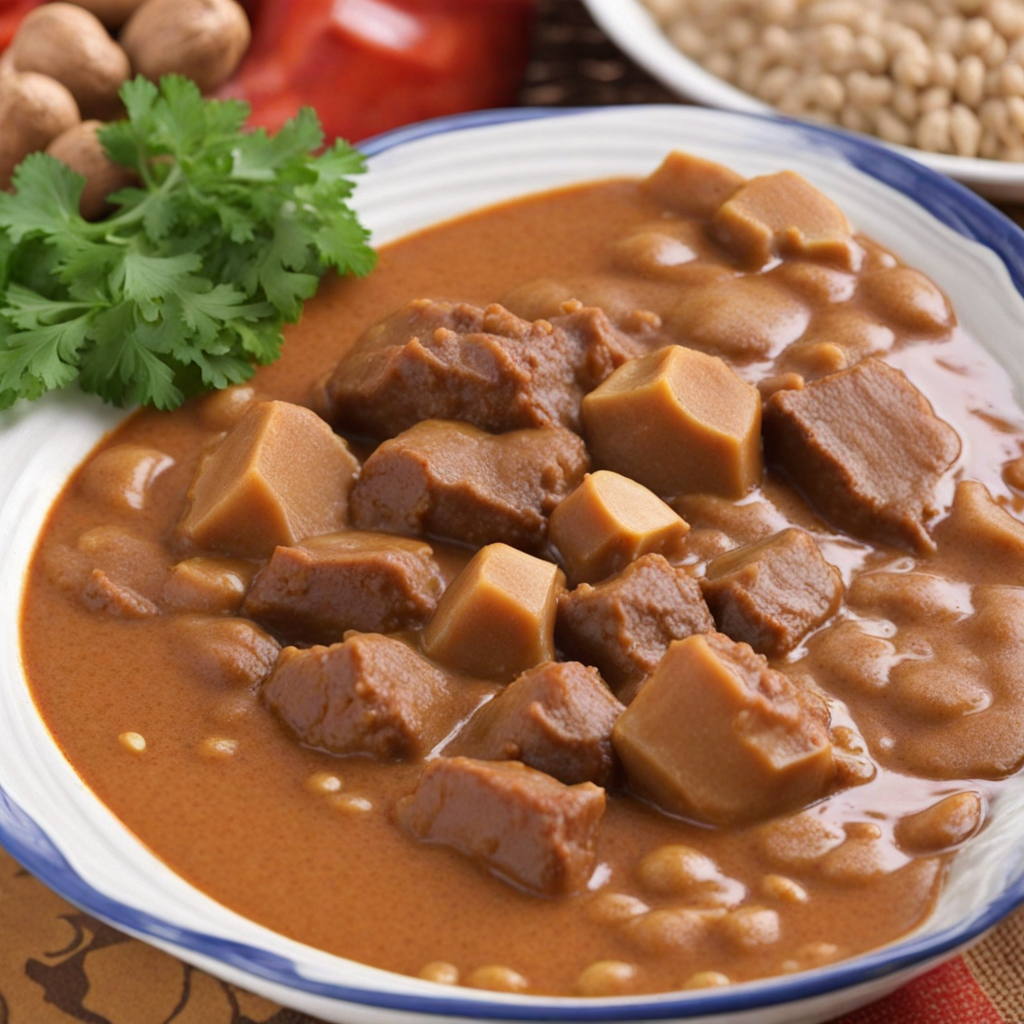Um Ali
Um Ali is a traditional Sudanese dessert that embodies the rich culinary heritage of the region. This delightful dish is a comforting bread pudding, made with layers of flaky bread, typically a type of flatbread, soaked in a creamy mixture of milk and sugar. The bread is usually torn into bite-sized pieces, allowing it to absorb the aromatic flavors of the milk, which is often infused with hints of vanilla or cardamom. The result is a dish that is both sweet and subtly spiced, offering a warm and inviting aroma that fills the room as it bakes to golden perfection.
How It Became This Dish
## The History and Cultural Significance of Om Ali in Sudan Origins of Om Ali Om Ali, a beloved traditional dessert in Sudan, is a rich bread pudding that embodies the essence of Sudanese culinary heritage. The name "Om Ali" translates to "Mother of Ali," which is said to pay homage to the wife of a Sultan from the 12th century, although the exact origins of the dish are shrouded in folklore. One popular legend attributes its creation to a rivalry between two wives of a royal figure. When one wife, seeking to prove her superiority, prepared this sumptuous dish for her husband, it was so delightful that it became a staple in Sudanese households, earning its name as a tribute to motherhood and familial love. While the exact timeline remains unclear, Om Ali likely emerged during the Mamluk period when Sudan was a cultural melting pot due to the influence of various civilizations, including Arab, African, and Ottoman cultures. The convergence of these cultures brought a wealth of culinary practices and ingredients, which would shape the development of Om Ali as we know it today. Ingredients and Preparation Om Ali is characterized by its simple yet hearty ingredients, often featuring layers of phyllo dough or traditional Sudanese bread, milk, sugar, and a variety of nuts and spices. The base consists of torn pieces of bread, which are then soaked in a sweetened milk mixture flavored with cardamom and vanilla. Nuts such as almonds, pistachios, or walnuts often grace the top, adding a delightful crunch to the creamy pudding. Raisins or coconut flakes are also common additions, reflecting regional variations and personal preferences. The preparation of Om Ali is a communal activity, often enjoyed during family gatherings and celebrations. It is typically served warm, allowing the flavors to meld together, creating a comforting and indulgent treat that resonates deeply with those who partake in it. The dessert is not just a dish; it is an experience that fosters togetherness and reminds participants of their cultural roots. Cultural Significance Om Ali holds a significant place in Sudanese culture, transcending mere sustenance to become a symbol of hospitality and familial bonds. It is frequently served during festive occasions such as weddings, Ramadan, and Eid celebrations, illustrating the importance of sharing food as a means of strengthening social ties. The act of preparing and serving Om Ali is imbued with cultural rituals, embodying the values of generosity and community. In Sudan, food is more than nourishment; it is a language of love and respect. Om Ali serves as a conduit for expressing care, especially during important life events. The dessert has become synonymous with hospitality, where serving Om Ali to guests is a gesture of welcome and warmth. The presence of this dish at gatherings signifies a celebration of life, love, and togetherness, making it an integral part of Sudanese identity. Regional Variations and Development Over Time As Om Ali has traveled across borders and generations, it has evolved, adapting to different tastes and preferences. While the traditional Sudanese version remains popular, variations of Om Ali can be found in neighboring countries, including Egypt, where it is referred to as "Om Ali" and is often made with layers of puff pastry instead of bread. In Sudan itself, the recipe for Om Ali is not static; it has developed regionally. In urban areas, modern kitchens may incorporate techniques and ingredients influenced by globalization. For instance, the use of condensed milk, chocolate, or even ice cream has emerged in contemporary renditions, making Om Ali a versatile dessert that appeals to younger generations while preserving its traditional essence. The globalization of food culture has allowed Om Ali to gain recognition beyond Sudan. In recent years, Sudanese restaurants and culinary festivals worldwide have showcased this beloved dish, introducing it to diverse audiences. As people explore global cuisines, Om Ali has found a place on international menus, appealing to those seeking authentic and exotic flavors. The Future of Om Ali As we move into an increasingly interconnected world, the future of Om Ali appears promising. The resurgence of interest in traditional, home-cooked meals and the emphasis on preserving culinary heritage have ensured that this dessert will continue to be cherished. The ongoing efforts of Sudanese communities, both at home and abroad, to share their culinary traditions will keep Om Ali alive, allowing future generations to experience the rich flavors and stories behind this beloved dish. In Sudan, as families gather to prepare and enjoy Om Ali, they not only savor its deliciousness but also pass down stories and traditions, ensuring that the spirit of Um Ali continues to thrive. The dessert serves as a reminder of the resilience of Sudanese culture, illustrating how food can transcend time and geography, becoming a bridge between the past and present. Conclusion Om Ali is more than just a dessert; it is a symbol of Sudan's rich cultural heritage, reflecting the values of community, hospitality, and love. From its legendary origins to its contemporary adaptations, Om Ali has woven itself into the fabric of Sudanese identity. As it continues to evolve and inspire, this delightful dish remains a testament to the power of food in shaping cultural narratives and fostering connections among people. Whether served during festive occasions or as a comforting treat at home, Om Ali will forever hold a cherished place in the hearts of those who savor its creamy sweetness and the stories it tells.
You may like
Discover local flavors from Sudan







